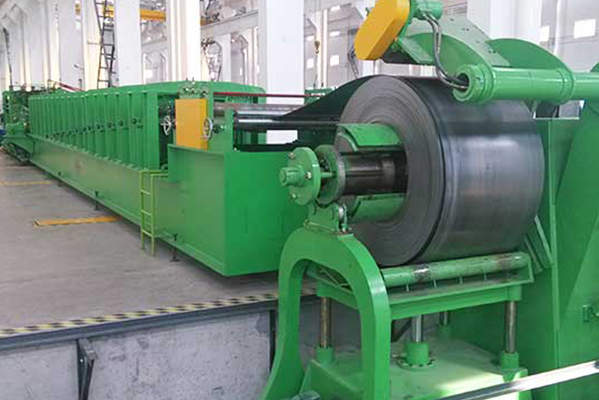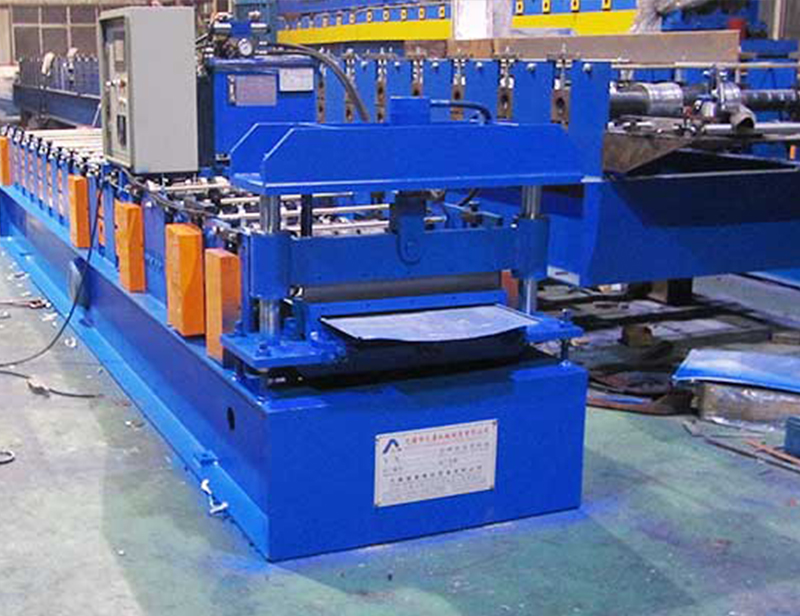Navigation Menu
Contact Us
- Email:
- info@wxavatar.com
- Address:
- Yurong Village, Yuqi Street, Huishan District, Wuxi, China.
Release Date:Jun 11, 2025 Visit:74 Source:Roll Forming Machine Factory
Selecting the right steel silo roll forming machine is crucial for the efficiency and quality of silo production. This process requires a comprehensive evaluation of various aspects, including the machine's performance, ease of operation, maintenance requirements, and overall impact on production. So, what exactly should we focus on before making a decision?

Processing Capabilities
Firstly, the machine's processing capabilities are a core consideration. This encompasses the range of steel plate thicknesses and widths the machine can handle, as well as the diameter range of the silos it can form. Different production needs dictate different machine specifications. For instance, if you plan to produce large storage silos, you'll need a machine capable of processing thicker, wider steel plates and forming larger diameters. Conversely, if your primary focus is smaller silos, a more flexible and compact machine might be more suitable.
Forming Precision and Stability
Secondly, forming precision and stability are paramount. A high-quality roll forming machine should consistently produce silo panels that are precisely sized and uniformly shaped. This not only relates to the overall structural integrity and sealing of the silo but also directly impacts the ease of subsequent installation. The machine's structural design, the material and precision of its rollers, and the stability of its transmission system are all critical factors influencing forming precision. When evaluating, it's beneficial to inquire about the machine's repeatability and the consistency of products across batches.
Operational Ease and Automation Level
Next, operational ease and the level of automation warrant attention. Modern production emphasizes efficiency, and a machine that's easy to operate can significantly reduce training time and boost productivity. Some advanced machines feature more intuitive control systems, and even some level of automation, such as automatic feeding, cutting, or roller gap adjustment. These features can minimize manual intervention, reduce the likelihood of operational errors, and enhance overall production efficiency.
Durability and Maintenance Costs
Furthermore, the machine's durability and maintenance costs are important long-term investment considerations. A robust and durable machine will lead to less downtime due to malfunctions and a longer service life. When making your selection, investigate the quality of materials used in the machine's structure and the brand and quality of critical components (like motors, bearings, and hydraulic systems). Simultaneously, consider the machine's routine maintenance requirements, such as lubrication points, the replacement cycle of wear parts, and their availability. Machines with lower maintenance costs can result in substantial savings over the long run.
Supplier Support
Finally, supplier service support is equally vital. This includes pre-sales consultation, machine installation and commissioning, operational training, and after-sales technical support. A responsible supplier can provide comprehensive technical assistance and timely troubleshooting services, ensuring the machine runs smoothly during production. While choosing the machine, it's also wise to assess the supplier's reputation and their track record of service.

In summary, when selecting a steel silo roll forming machine, you should thoroughly examine its processing capabilities, forming precision, operational ease, durability, maintenance costs, and the supplier's service support. By carefully considering these factors, you can make an informed decision and choose the right equipment for your silo production needs.